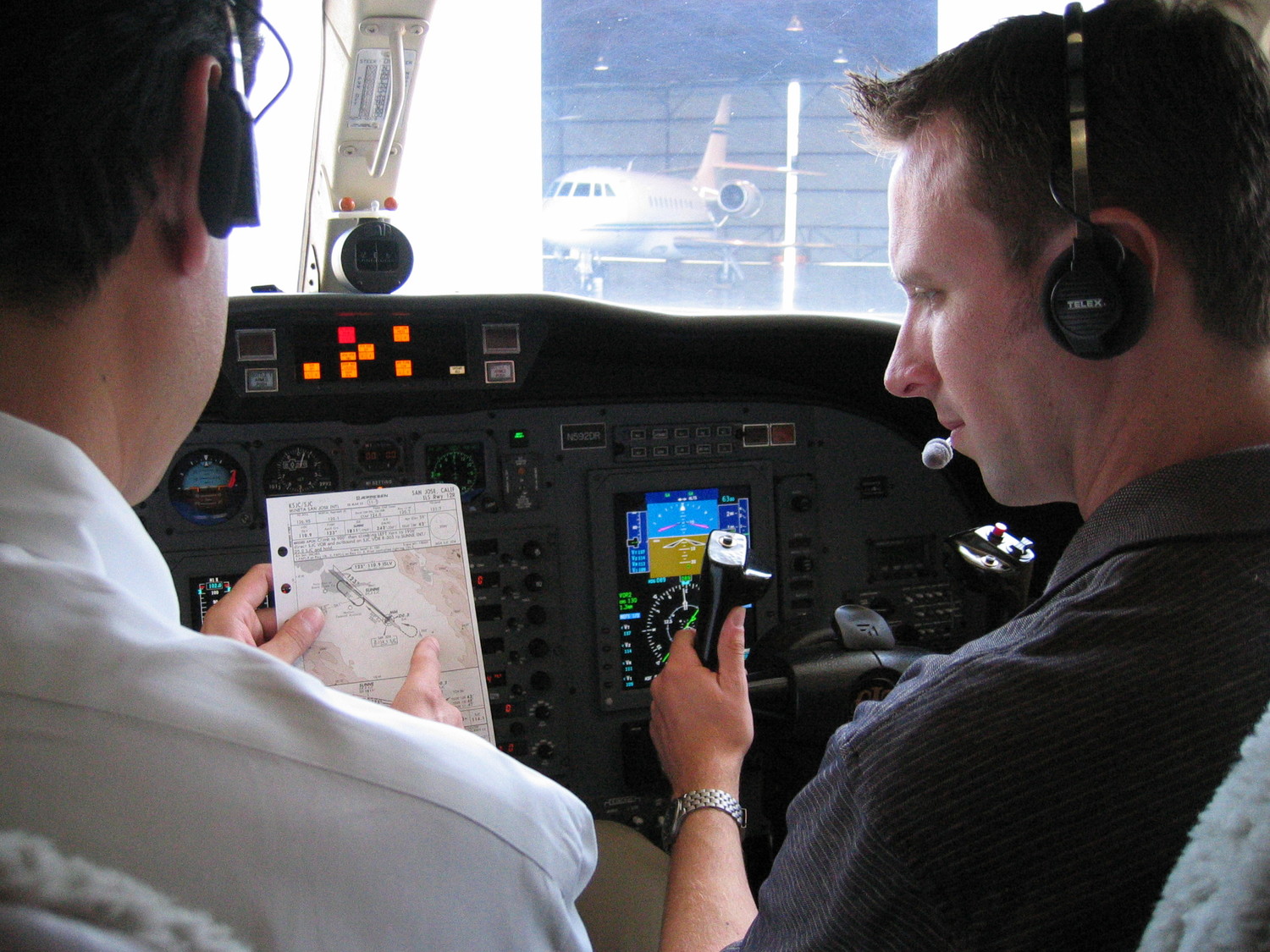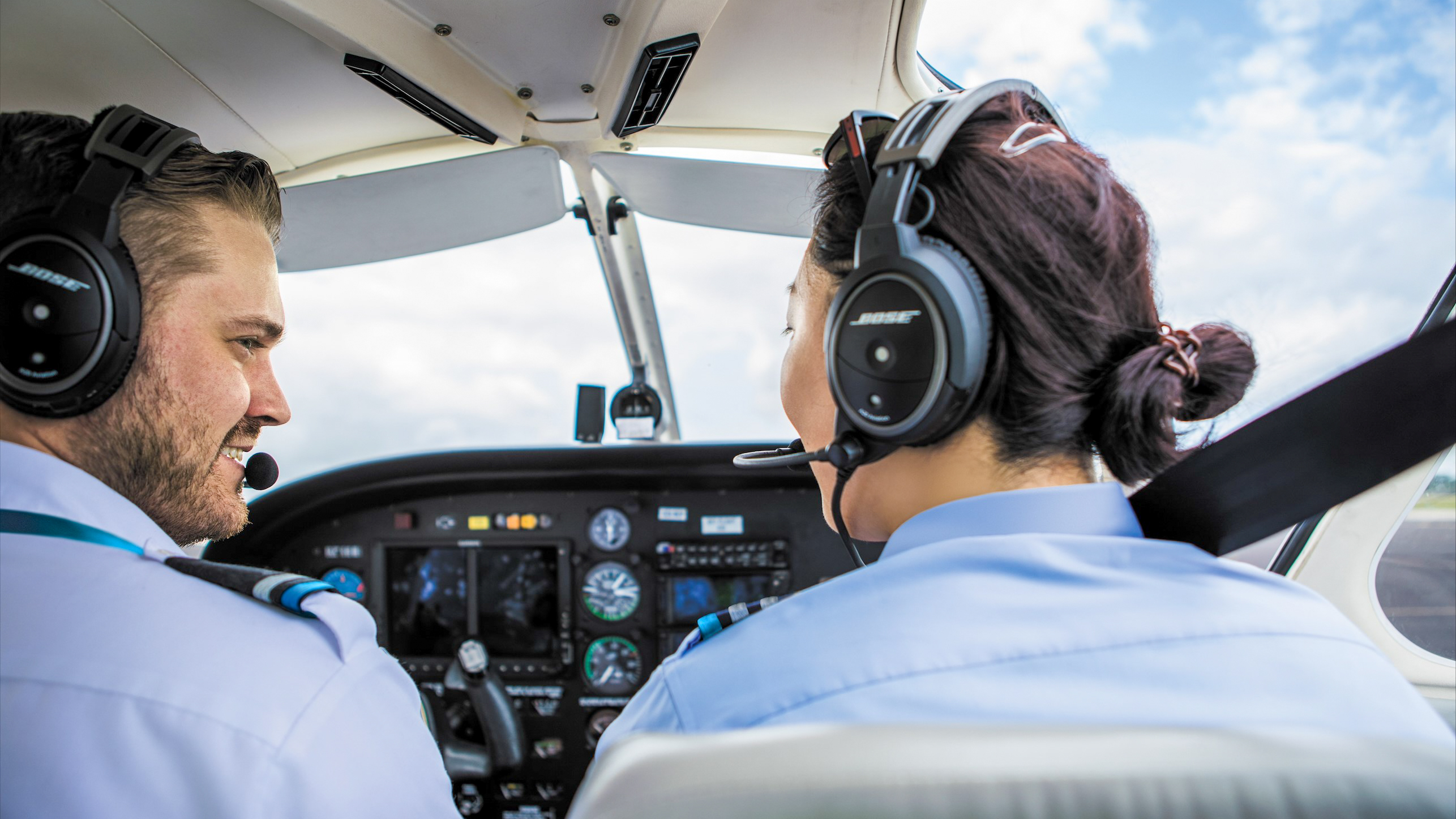Aircraft Insurance For Flight Instruction - If an aircraft is uninsured it may be denied service by the FBO. Likewise, if you're renting a plane and are uninsured, you probably won't be allowed to fly without an FBO or flight school instructor on board.
You should buy non-owned aviation insurance to cover yourself, the aircraft you rent, your passengers and anyone or anything else you might accidentally or inadvertently hurt or damage. These policies are easy to purchase, quick to set up and relatively affordable so pilots can take off without delay.
Aircraft Insurance For Flight Instruction

Annual premiums start at $81 with comprehensive and airplane damage liability rates starting at $175 a year. AOPA members get a 5% discount on their policy and Assured Partners also offers a 10% renewal discount each year for a claim-free flying record to reward their safe pilots.
Who Needs Airplane Renters Insurance?
AOPA provides life insurance with no exclusions for general aviation activities. You and your spouse are eligible if under the age of 66. You can buy a 10- or 20-year term policy for up to $1 million in benefits.
Annual premiums start at $95 a year while rates for aircraft damage liability start as low as $60 per year. Avemco's website has both an online quote system and agents available by phone. Note that for student pilots just getting started, insurance costs are likely to be much higher because of their inexperience.
Students and new pilots can expect to pay $300 to $500 once they've added the coverages necessary to rent training airplanes. Secure .gov websites using HTTPS A lock ( LockA locked padlock ) or https:// means you've safely connected to the .gov website.
Share sensitive information only on official, secure websites. FBOs also require student pilots to have their own insurance before doing any solo training in the FBO's aircraft. If you cause damage to a plane during your training as a student pilot, you are usually responsible for the aircraft owner's deductible.
Is Aviation Renter Insurance Required For Fbo Services?
Most flight schools and rental operations are set up this way, and your non-owner aircraft coverage will kick in to cover you should this happen. For example, AssuredPartners Aerospace's renter aircraft insurance policies pay up to $5,000 of the aircraft owner's or rental facility's deductible.
However, you must have aircraft physical damage coverage on your rental policy. Aircraft owners maintain aviation policies that cover liability, in-flight damage and damage to the plane. However, the coverage provided by owners, especially rental facilities and flight schools, generally will not cover damage caused by you as a renter pilot.
The owner's insurance company may pay the claim but then sue you to recover the cost of damages. Aircraft damage liability has a deductible that is a percentage of the value of the policy. Most aircraft hull policies are "agreed value" policies.
That means if the plane is totaled, the company will pay you the value stated in the policy that you and the insurer agreed upon, regardless of the aircraft's market value. Owning a flight school, instruction and rental business or running a university flight instruction program is a unique and rewarding experience but it does incur increased liability risk and exposure.

Bottom Line Aircraft Renters Insurance Is A Must-Have
It's important to protect your business or university with a comprehensive flight school insurance policy from BWI. Fixed-base operators (FBOs) are companies that are given permission to conduct aeronautical services at airports and act as private jet terminals.
Typical services include flight instruction, aircraft rental, aircraft maintenance, fueling and parking. FBOs normally require planes using the facility to be insured and for renters and student pilots to carry aviation renter insurance. For cash-conscious pilots and students especially, renting aircraft can be an affordable way to get to the skies.
Non-owned aircraft insurance is affordable and protects your financial stability if you experience a nasty crosswind-landing-gone-wrong, a hard landing, a ground-loop or even a minor taxi collision. What you pay for life insurance depends on the company's underwriting process, your health, age, amount of flight experience and other factors.
Pilots who don't earn a living by flying are typically charged more for life insurance than commercial pilots, and inexperienced pilots generally pay the most. In general, recreational pilots with less than 300 total hours of experience and no instrument rating will likely have to pay an extra fee in addition to their premium.
Life Insurance For Pilots
Chauncey grew up on a farm in rural northern California. At 18 he ran away and saw the world with a backpack and a credit card, discovering that the true value of any point or mile is the experience it facilitates.

He remains mostly at home on a tractor, but has learned that opportunity is where he finds it and discomfort is more interesting than complacency. To get the most aircraft damage protection, it's wise to opt for the ground and flight coverage when buying your non-owner policy.
Buy enough aircraft damage liability to pay to replace the most expensive plane that you rent or borrow. Many flight schools require a minimum of $30,000 in aircraft damage liability to rent a standard training airplane, but some mandate much higher amounts of coverage.
Short-term coverage periods like those offered by SkyWatch have been popular with drone and sUAS remote operators, but the company also provides insurance to light aircraft renters and owners on a daily or weekly basis. SkyWatch doesn't have the history Avemco or the AOPA have, but its coverage partner Global Aerospace Inc.
Tips For Buying Non-Owner Aviation Insurance
has been around since 1924. Not much puts the joy and freedom of flight into a nosedive faster than the headache of aviation insurance. Finding the right insurance can be difficult and finding the wrong insurance can ground you—financially and otherwise.
Michelle is an insurance analyst at Forbes Advisor. She has been a journalist for over 30 years, writing about insurance for consumers for the last decade. Prior to covering insurance, Michelle was a lifestyle reporter at the New York Daily News, a magazine editor covering consumer technology, a foreign correspondent for Time and various newswires and a local newspaper reporter.

While aircraft owners need extensive coverage for their planes, non-owned aircraft insurance is fairly straightforward and relatively inexpensive for pilots renting aircraft from clubs, flight schools and other rental outfits. Learning when and what type of insurance is required will help you find the exact policy that meets your needs and keep you flying.
Most life insurance providers will require you to fill out a supplemental aviation form that asks questions about your level of training, how frequently you fly, instruments you are licensed for and the types of aircraft you fly.
Flying Clubs And Non-Owned Aircraft Insurance
BWI is a family-owned, nationwide insurance brokerage specializing in aviation insurance since 1977. Our dedicated Aviation Insurance Professionals are highly trained, hand-picked and experienced in helping flight schools and instruction and rental businesses, obtain the very best insurance coverage.
You should take advantage of the many online quote calculators offered by insurance companies, including Avemco, AOPA/Assured Partners and BWI Aviation Insurance. Compare quotes from multiple companies for the same amount of coverage and check for perks and discounts.
For instance, some companies offer accident forgiveness. A flying club is a member-run organization that splits the high cost of aircraft ownership by giving a group of pilots affordable access to the skies. Many insurers provide custom aviation insurance designed for the club's needs.

If you're joining a flying club, be sure to ask what types of insurance coverage the club already has and whether it's recommended or required that you purchase any additional coverage. Many clubs require each individual member to have insurance, but some charge an insurance fee or wrap the cost of the club's group insurance into the membership fees or the cost of the airplane rentals.
How Much Non-Owned Aircraft Insurance Do I Need?
Avemco provides links to non-Avemco affiliated websites as a service to its website visitors. Upon clicking any such links, you will be leaving the Avemco website. Any information that you provide directly on those sites is subject to the privacy policy posted to and/or applicable to those websites.
Avemco assumes no responsibility for the security, privacy practices, or your use of those websites. * Not all coverages or products may be available in all jurisdictions. The description of coverage in these pages is for information purposes only.
Actual coverages will vary based on local law requirements and the terms and conditions of the policy issued. The information described herein does not amend, or otherwise affect, the terms and conditions of any insurance policy issued by Avemco.
In the event that a policy is inconsistent with the information described herein, the language of the policy will take precedence. "Instant" coverage and policy changes do not apply in all situations. Additional information may be required.
Premium credits subject to policy terms and underwriting guidelines. Flight School Insurance policies include liability coverage as standard to protect the policyholder from the legal liability of bodily injury or property damage incurred by the operation of a flight school aircraft, instructor or student.
Policies may also include hull coverage which covers physical damage to the aircraft. Annual premiums for student pilots with no experience can be as low as $71 for minimum liability coverage. Add $20,000 in hull coverage and the rate jumps to $286.
Daily coverage for the same starts at $13.19 per day. With greater experience and additional ratings the cost of coverage can decrease. Consider buying more than the minimum amount of insurance available. It's recommended that you have bodily injury liability limits of $200,000 per passenger for injuries, up to $1 million for all injuries in an accident you cause.
Buying bodily injury coverage for passengers is also prudent. At the very least, buy as much liability insurance as you can afford.
aircraft flight controls, aircraft flight following, flights by aircraft type, aircraft flight history, aircraft flight manuals free download, tracking aircraft flights